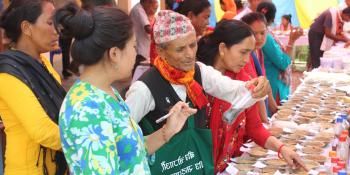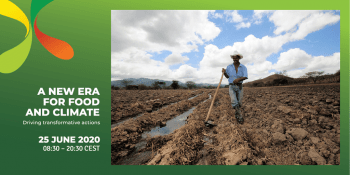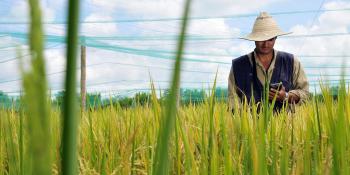How Uganda's insecure land tenure system affects climate adaptation work

Insecure land tenure rights in Uganda make farmers avoid long-term investments that could help them adapt to climate change and manage resources sustainably.
The Kiha river catchment in Hoima and Masindi Districts of Western Uganda has an estimated total land area of 150 km2. This region, like many others in Africa, is witnessing a changing climate, depleting natural resources, large-scale migration and rapid farmland conversions.
Supported by the CGIAR Research Program on Climate Change, Agriculture and Food Security (CCAFS), the National Agricultural Research Institute and Makerere University are working together to prepare the Kiha river catchment for climate change through the promotion of sustainable resource water management practices as well as climate-smart agriculture.
Assessing the core issues in the water catchment
As a way to ensure that the Hoima Watershed Management project covered the true needs of the large catchment community, the group made an initial assessment of the situation using social learning approaches.
Through pulling together stakeholders from the neighbouring areas, participants got to talk and share concerns about the deteriorating situation in and around the catchment, something they had never done before.
Here the research project learned that the current land tenure system in Uganda is a key driver behind some of the damaging practices, including deforestation, poor waste management and overuse of pesticides, including lack of involvement in the project activities on sustainable watershed management.
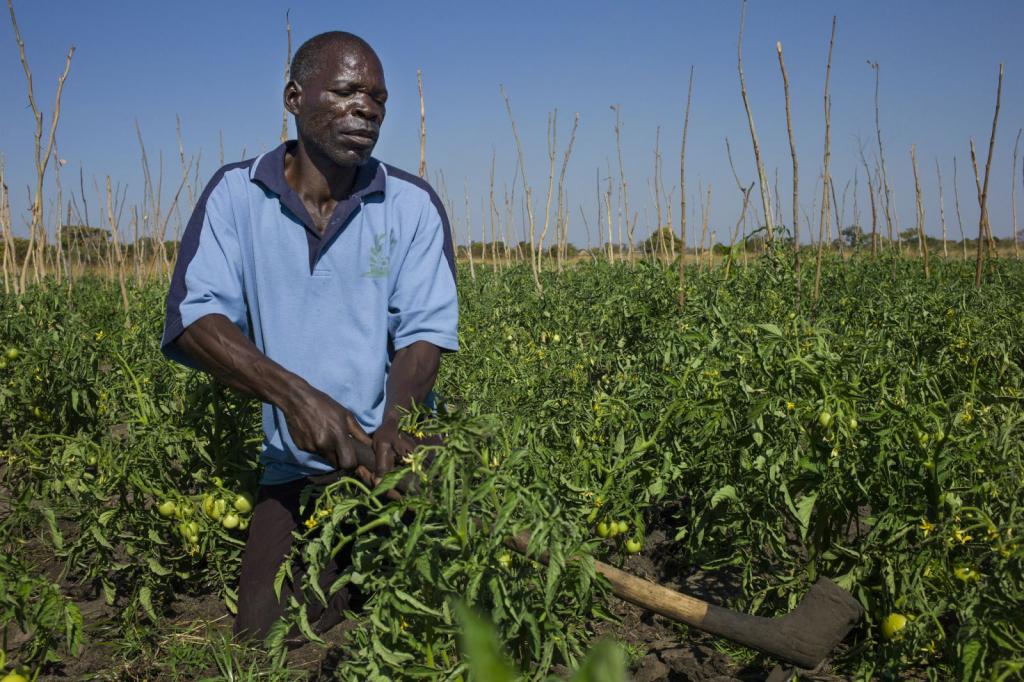
Insecure land tenure rights create few incentives for long-term investments, such as climate-smart farm practices, and is a stumbling block for climate adaptation work. Photo: A. Fawcus (WorldFish)
Introducing Uganda's land tenure system
There are presently four types of land tenure systems in Uganda; customary, mailo, freehold and leasehold.
Leasehold is a system where land is held based on an agreement between lessor and the lessee. This tenure is not safe as terms and conditions can easily be manipulated and ownership revoked.
Under customary systems, land is owned and disposed of under customary regulations. The land can be owned by an individual, a family or a community, and is the most dominant system in Uganda. Under this tenure, proper records are not kept which makes it difficult to purchase land and resolve land-related conflicts. The inherent insecurity leads to mismanagement and degradation, as little personal interest in the land exists.
Farmers can convert land tenures into freehold which provides them with secure land titles from their district land offices. Mailo is a similar system, where land tenure is more stable as land is owned.
Impacts from insecure land tenure systems
The lack of sustainable management in the catchment can be traced back to insecure leasing of customary land. Customary land owners rent out fragile areas near wetlands, stream valleys, hills and virgin forests as here they get more money from tenancy as land is fertile and good for tobacco growing and other cash crops.
Most of these tenants are involved in unsustainable practices like wetland destruction, excessive use of herbicides and pesticides, waste disposal into the catchment, intensive cultivation, and bush burning. All of these activities are driven by profit-thinking.
These tenants have little interest in awareness, training on proper agronomic practices, or how to implement adaptation measures like improved seeds or appropriate technologies. There is, in short, little interest in doing any type of long-term investments on the farm, which the project is struggling to overcome.
As mentioned, the lack of ownership and fear that landlords might change their minds and revoke their tenancy or increase fees are contributing to the situation.
Consequently, the tenants do not want to, or in some instances are prohibited to, plant trees or take on long-term climate adaptation and management measures.
Land tenure rights and gender issues
This situation affects women more so than men, as women have the lowest holdings and weakest land tenure rights in Uganda.
In rural settings, where customary land tenure is common, women rely on conjugal (bridal) co-ownership of land, only applicable as long as the couple stays married. While the Ugandan constitution guarantees equality in land ownership between husband and wife, customary and traditional arrangements, normally benefitting men, are stronger in practice.
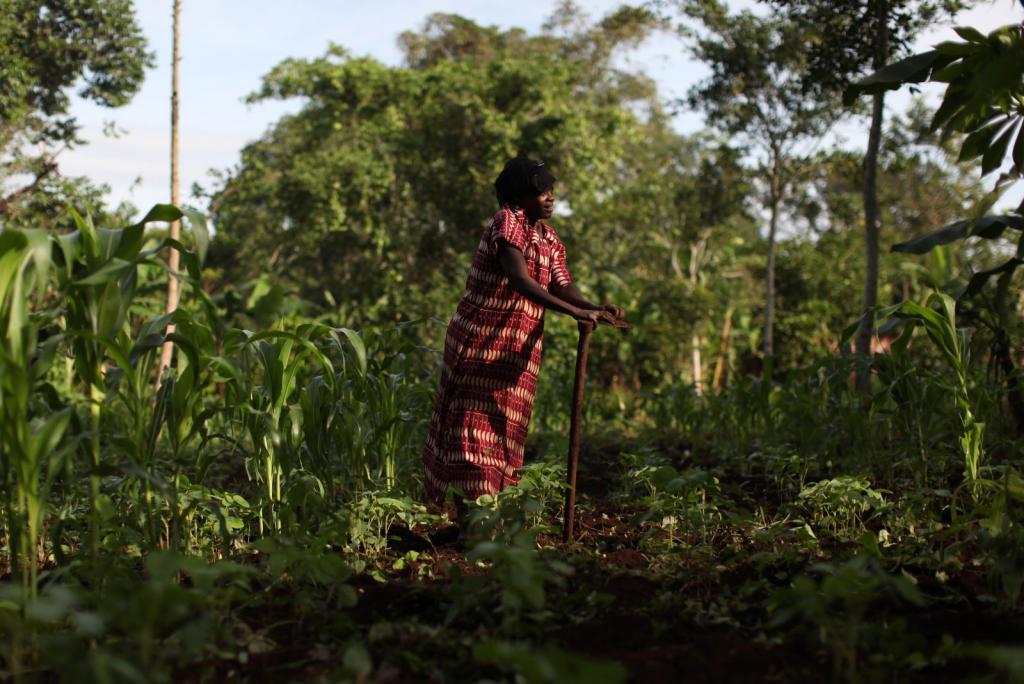
Even if women have rights to their marital land, customary and traditional arrang-ements tend to benefit husbands more so than wives, that could leave women without land in case of a divorce. Photo: Bread for the world
Trying to make a sustainable difference
Without the initial social learning approaches and discussions, the group might not have caught that land tenure rights issues could be so decisive for the success of the project activities.
But even with this knowledge, and the fact that the land tenure issues will not be solved tomorrow, the project cannot stop now. Instead, efforts tailored to fit the situation and continuous awareness about land use rights issues are needed.
Additional project activities such as advocating for policy implementation and integration of land tenure issues could be made priority together with the original project outline of demonstrating climate-smart agriculture practices and integrated water management practices.
The project will go on for at least another year, thus there are a number of interventions that can be taken to address the issues related to insecure land tenure rights and subsequent effects.
Learn more about the project's social learning approaches through these blogs:
- Using social learning approaches to restore depleted water catchment in Uganda
- Upstream in social learning process
The Hoima Watershed Management Project is one of the selected projects by the Climate Change and Social Learning Initiative, as a real-life social learning case study. Learn more: All lights on real-life social learning case studies
Juliet Katusiime is a Master Student at Makerere University in Uganda. She is working with the Hoima Watershed Management project by conducting research and supporting work on the ground.
Story edited by Cecilia Schubert, Communication Officer at CCAFS.

